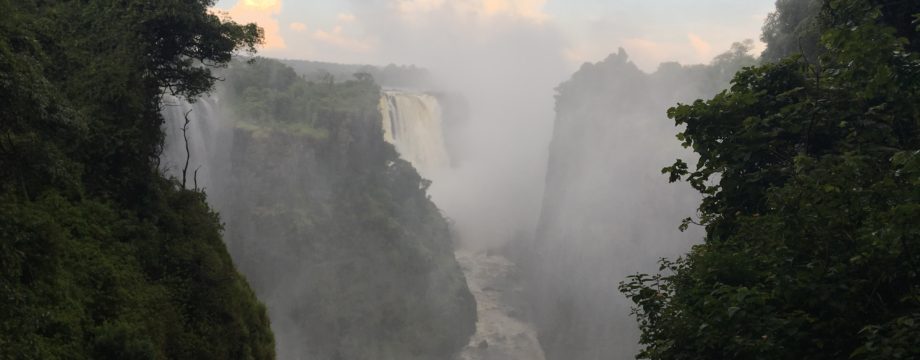This article was originally published on Cache Up NB. It has been mirrored here for archive purposes only.
I had only been geocaching for about a month but I had seen the abbreviation around and knew what it meant. FTF. First To Find. What was the big deal? Was it really something special or just something I didn’t get. I was about to find out.
My email rang and I saw that a new cache had been hid – GC1921G – Rebecca’s back. I checked out the location and was immediately reminded of the area. The story of Rebecca’s Grave is indeed one that many folks from Moncton have heard. I remember when I was younger going out there and being told that if you walked from the grave out into the field, you’d never return. Many stories of her being buried under all that cement have been overheard many times in Moncton. So when I saw that Funky’s cache was right there, I thought I’d head out and try and get this elusive FTF that I kept reading about.
Turns out, it was pretty easy. Found the cache within minutes, opened it up and there were no names. A certain thrill of excitement came to me as I signed my name on the log and returned it to it’s hiding spot. I went on my way and never thought much more of it.
On Saturday night, I shared my 51st FTF with several other cachers while out in Pointe Du Chene. It got me to thinking about how the FTF has become both a symbol of pride and detriment to many. Depending on the person you speak to, an FTF could be a very big deal and something they are very proud of, or it can bring up tales of FTF wars and disputes about who really found something first and how that argument has left a bad taste in their mouth. Who knew that something a simple as three letters could cause so much fuss. What’s the big deal?
The big deal, as perceived by many, is that an FTF is a sort of pseudo-prize that one gets when you are the very first to find a cache. Prior to that point, no one else has ever found that container and thusly it makes your accomplishment that much more important. For some containers, it’s not a big deal as it’s just an easy cache. But for others, when you are the FTF on a container that many have struggled with, it’s even more of an honour because now you have been able to do something others could not. This can raise your pride level a bit to the point of arrogance, depending on the individual.
But where does the controversy come from? Let’s start with the most obvious. Who was the actual first person to find a cache.
By my definition, an FTF is for a person who is the first person to actually find the geocache container, after it has been hidden. Anyone who was there when the cache was hidden did not “find it” as they were there. Although they can sign the log and log it online, they did not find it first as they were already there when the container was placed. Those individuals shouldn’t claim an FTF. An FTF should be claimed (or can be claimed) by the first person who actually goes out and finds the cache, and signs the log. An FTF is not for someone who first logs the cache online. That is many times referred to as an FTL.
Many folks get their arms up in the air when a person logs an FTF when they were there when the cache was hidden. The might also claim an FTF on a cache if they “think” they were the first person to find it when in fact they weren’t. Many folks also think it’s bad form to claim an FTF on a cache that has not been published yet. Some people will get coords to a cache before it gets published and then go find it and log it and claim an FTF. Some folks say that’s in bad taste.
Then you also have situations where cache owners say people can’t claim FTFs on their caches because they want to give the FTFs to other people. Although I can understand the idea behind this, an FTF is whoever found the cache first. No way to really control that. But regardless, some people do and sometimes it works out fine. Other times, it turns into a real mess.
Lastly, you have people who hide a series of caches and then a single person goes out and finds them all and claims the FTF for all of them. Some folks get their pits in a roar because they feel someone is “stealing” all the FTFs from other people and it’s not fair. That person should have left some of the caches for others to find first. A variation of this is the FTF Hound who is generally regarded as someone who does anything and everything they can to snag an FTF because they don’t want others getting them, or they have a real desire to be the best FTF’er out there. This also somehow “deprives” others of the chance to get an FTF. I know of geocachers who have refused to speak to other geocachers because they felt an FTF was “stolen” from them.
In writing this article, and re-reading the items above, I find myself shaking my head and thinking “Really?”. Geocaching is primarily a hobby done by adults and it’s pretty sad to see some of the behavior we exhibit because of a three letter abbreviation.
I have gone for FTFs on occasion and I do track them but it’s not the end of the world for me. If people want to go for them and they get really excited about the challenge of obtaining them, good for them. Just try and remember to not take it so seriously. An FTF is not a gold medal. It’s not even really something that’s officially recognized by geocaching.com. It’s just something else that helps make this hobby interesting.
How do you play the FTF game, if you play it at all?



16 Responses to Capturing The Elusive FTF